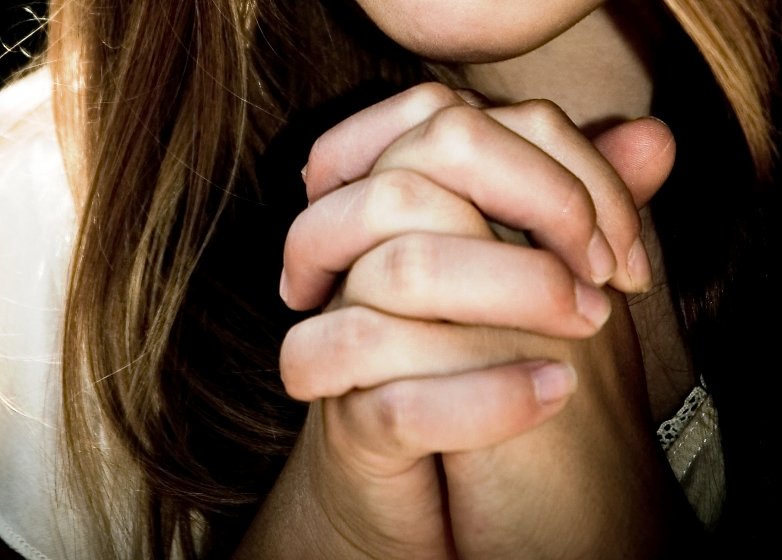
In a document for consideration by the world body's Human Rights Council, a global organisation linking people who reject religion said atheism was banned by law in a number of states where people were forced to officially adopt a faith.
"Extensive discrimination by governments against atheists, humanists and the non-religious occurs worldwide," declared the grouping, the International Humanist and Ethical Union (IHEU) which has some 120 member bodies in 45 countries.
In Afghanistan, Iran, Maldives, Mauritania, Pakistan, Saudi Arabia and Sudan "atheists can face the death penalty on the grounds of their belief" although this was in violation of UN human rights accords, the IHEU said.
Further, in several others legal measures "effectively criminalise atheism (and) the expression and manifestation of atheist beliefs" or lead to systematic discrimination against freethinkers, the document declared.
It was submitted to the rights council as it opened its annual Spring session against a background of new efforts in the UN by Muslim countries to obtain a world ban on denigration of religion, especially what they call "Islamophobia".
Three of the states with legislation providing for death for blasphemy against Islam, a charge which can be applied to atheists who publicly reveal their ideas, are on the council - Pakistan, Mauritania and Maldives.
Turkey's Foreign Minister Ahmet Davutoglu told the council on Monday there was a "rising trend" of Islamophobia, adding: "We condemn all sorts of incitement to hatred and religious discrimination against Muslims and people of other faiths."
OIC wants action
Earlier this month a top official of the 57-nation Organisation of Islamic Cooperation (OIC) said the body would be focusing on getting agreement on criminalising denigration of religion in coming talks with Western countries.
In November last year, the head of the 21-country Arab League told the UN Security Council in New York his organisation wanted a binding international framework to ensure "that religious faith and its symbols are respected".
The IHEU, and other non-governmental rights groupings, argue that many Muslim governments use this terminology and the concept of "religious blasphemy" within their own countries to cow both atheists and followers of other religions.
A number of these governments "prosecute people who express their religious doubt or dissent, regardless of whether those dissenters identify as atheist", the IHEU document submitted to the rights council said.
Islamic countries - including Bangladesh, Bahrain, Egypt, Indonesia, Kuwait, Saudi Arabia, Tunisia and Turkey - had also stepped up prosecution of "blasphemous" expression of criticism of religion in social media like Facebook and Twitter.
OIC countries have 15 seats on the council, all from Asia, Africa and the Middle East, and make up just less than one third of the rights body.
COMMENTS (4)
Comments are moderated and generally will be posted if they are on-topic and not abusive.
For more information, please see our Comments FAQ

1725783822-0/Tribune-Pic-(15)1725783822-0-165x106.webp)















Believe What you want to Believe...
Why should anyone have to follow anything...
Each to their OWN...
What I BELIEVE AND WHAT I BELIEVE IN....
IS .... MY ..... BUSINESS..... MY MIND.... MY HEART.... MY SOUL....
MY BUSINESS....
Enough of this atheophobia! Seriously being an atheist in an Islamic country is so hard that most people don't even want to admit it to themselves let alone to their family members and friends.
"In Afghanistan, Iran, Maldives, Mauritania, Pakistan, Saudi Arabia and Sudan “atheists can face the death penalty on the grounds of their belief” although this was in violation of UN human rights accords, the IHEU said."
There is one common denominator between these countries which someone can figure out instantly.
As for OIC's attempts to criminalize free speech, it wants other free, democratic, and secular countries to become the same authoritarian and despotic dumps as are most member of the OIC. This is the same organization which passed Cairo Declaration of Rights, in opposition to Universal Declaration of Human Rights. The key feature of the Cairo Declaration is that is does not forbid domestic violence, marital rape, slavery, the practices of child marriages, punishments involving amputations. It does not promote equality and equal opportunity for both sexes, and does not forbid religious discrimination against minorities residing in muslim majority countries.
Time to claim minority status for Atheists, under UN mandate.